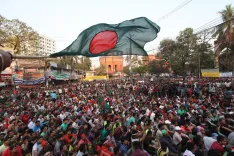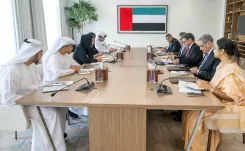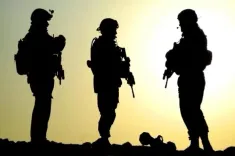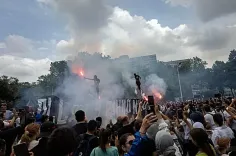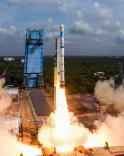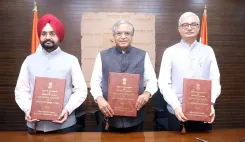How Will India Confront Terrorism with Strength, Unity, and Determination?
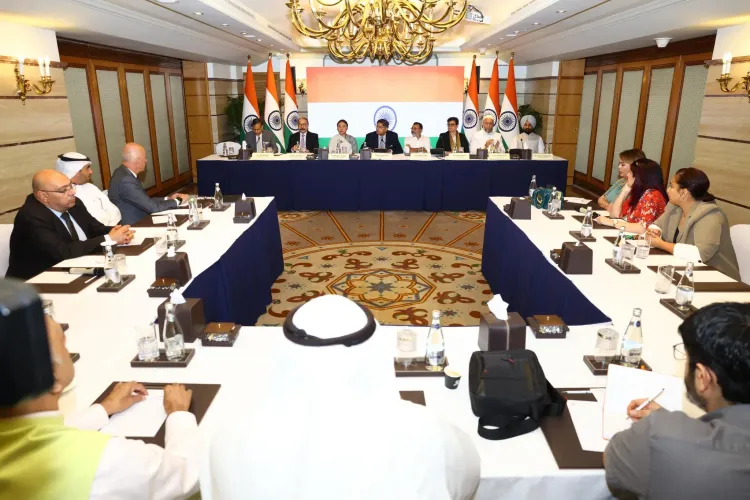
Synopsis
Key Takeaways
- India and Kuwait are strengthening their partnership against terrorism.
- The all-party delegation emphasizes national consensus on combating terror.
- Operation Sindoor highlights India's proactive approach to cross-border terrorism.
- Engagement with Kuwaiti civil society reflects a commitment to international collaboration.
- India's 'New Normal' approach sets a clear stance against terrorism.
Kuwait City, May 27 (NationPress) The Indian all-party delegation, under the leadership of BJP MP Baijayant Jay Panda, engaged with representatives from the Indian regional media and local press in Kuwait, emphasizing India’s united and steadfast national consensus on fighting terrorism. The delegation underscored the robust strategic partnership between India and Kuwait, which includes a mutual commitment to combat terror and India’s recent initiatives against cross-border terrorism.
"India is resolute — we will tackle terrorism with strength, unity, and determination, with no compromises and zero tolerance. Alongside our all-party delegation, we engaged with Indian regional media and local press in Kuwait, reiterating India’s unwavering determination against cross-border terror and our strengthening strategic partnership with Kuwait in this collective battle," Panda shared on X.
Earlier, the delegation attended the exhibition 'Rihla-e-Dosti: 250 Years of India-Kuwait Friendship' at the National Library in Kuwait City, showcasing rare manuscripts, historical texts, coins, and artifacts, which highlight the profound historical ties between India and Kuwait.
"India and Kuwait enjoy a remarkable friendship, rooted in deep historical, cultural, and economic connections. Our all-party delegation visited the exhibition at the National Library titled ‘Rihla-e-Dosti: 250 Years of India-Kuwait Friendship’, presenting rare manuscripts, historical books, coins, and artifacts, which highlight our lasting bond," mentioned Panda.
The delegation also engaged with a diverse group of Kuwaiti civil society members in a traditional Diwaniya-style dialogue, emphasizing both nations' shared commitment to combatting terrorism.
This event, co-organized by the Embassy of India and a think tank, gathered influential figures from Kuwaiti civil society, including members of the royal family, former ministers, senior editors, think tank specialists, opinion leaders, and influencers.
“The discussions, while highlighting the strong India-Kuwait strategic partnership, focused on the current situation in the Indian subcontinent and India’s ‘New Normal’ approach to addressing incidents of cross-border terrorism. Participants unanimously agreed that terrorism is an affront to humanity and must be countered through all available means,” stated the Indian Embassy in Kuwait.
The Indian delegates also connected with the Indian community in Kuwait, stressing India’s 'new normal' stance against cross-border terrorism, the success of Operation Sindoor, the national consensus against terrorism, and the support from the Indian diaspora in national matters.
"The delegation had a fruitful meeting with Sheikh Abdullah Saad Al-Maousherji, Deputy Prime Minister and Minister of State for Cabinet Affairs of Kuwait. The delegation highlighted the ongoing threat of cross-border terrorism from Pakistan, including the recent terrorist incident in Pahalgam, aimed at disrupting peace and development in Jammu and Kashmir, an inseparable part of India," the Embassy of India in Kuwait stated.
"They highlighted the precise, targeted, proportionate, and non-escalatory nature of India’s response to the Pahalgam terror attack. The delegation reinforced India’s policy of ‘Zero Tolerance’ and the ‘New Normal’ approach towards terrorism, which does not differentiate between terrorists and their supporters. The Deputy Prime Minister expressed gratitude to the Indian delegation for sharing their insights on recent events and reaffirmed that terrorism lacks justification,” the statement continued.
The delegation, led by Panda, included BJP MP Nishikant Dubey, BJP MP Phangnon Konyak, BJP MP Rekha Sharma, AIMIM MP Asaduddin Owaisi, BJP MP Satnam Singh Sandhu, former Jammu and Kashmir Chief Minister Ghulam Nabi Azad, and former Indian diplomat Harsh Vardhan Shringla.
They are part of the Operation Sindoor outreach campaign aimed at highlighting India's ongoing efforts against Pakistan-sponsored cross-border terrorism.

